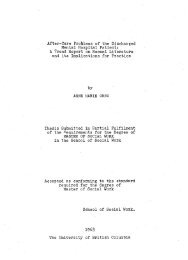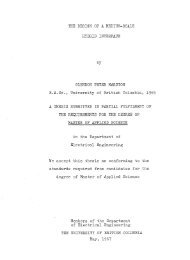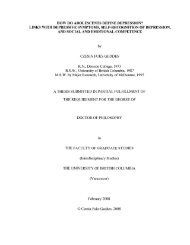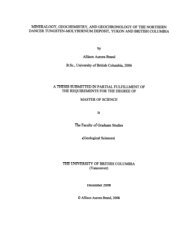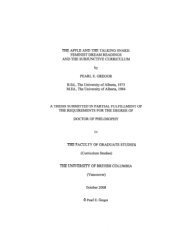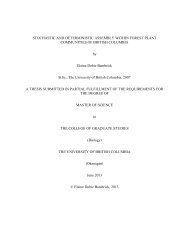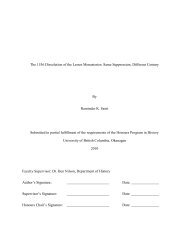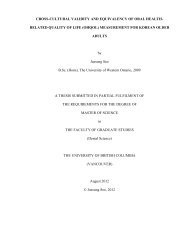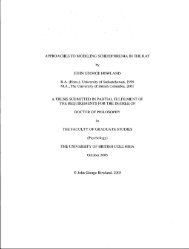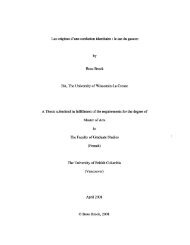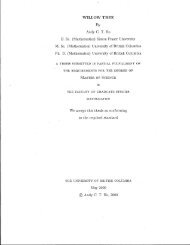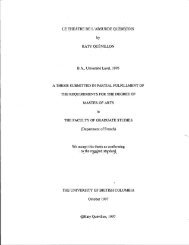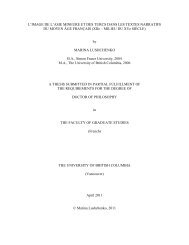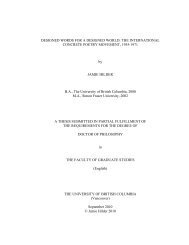A STUDY OF THE THEORY OF APPRAISAL FOR SELECTION By ...
A STUDY OF THE THEORY OF APPRAISAL FOR SELECTION By ...
A STUDY OF THE THEORY OF APPRAISAL FOR SELECTION By ...
Create successful ePaper yourself
Turn your PDF publications into a flip-book with our unique Google optimized e-Paper software.
is, the political issue of extent and mix of public and private<br />
records within a repository is better dealt with by developing a<br />
acceptable acquisition policies, rather than clouding the already<br />
murky picture of appraisal.<br />
In 1964, Johannes Papritz echoed earlier attempts to develop<br />
objective standards. Scientific principles should guide<br />
appraisal and culling, he argued, and knowledge of the structural<br />
form of the record body would serve as a precondition to such<br />
scientific appraisal.34 He went on to insist that appraisal must<br />
"never be made dependent upon the availability of existing space<br />
in the repository."35 His words imply that, in his assessment,<br />
appraisal is a theoretical problem that requires an intellectual<br />
resolution. Practical problems are extraneous to the central<br />
issue of deciding how archivists choose for society which records<br />
should be saved and which can be destroyed.<br />
Papritz, thus, attempts to revitalize the principle of<br />
provenance for the appraisal process. The principle is derived<br />
from the understanding that the records of an organization are<br />
arranged together because the record body, by creation and<br />
meaning, constitutes a logical unit in which each document exists<br />
in relationship to the entire body of records. Papritz argues<br />
that an understanding of the structural form of a fonds, which<br />
34 Johannes Papritz, "Zum Massenproblem der Archive," Der<br />
Archivar 17 (1964): col. 220; quoted in Booms, "Society," 94.<br />
35 Ibid; quoted in Booms, "Society," 77, footnote 24. As<br />
noted in the footnote, Booms considers Papritz's statement to be<br />
"ideologically rigid."<br />
46



